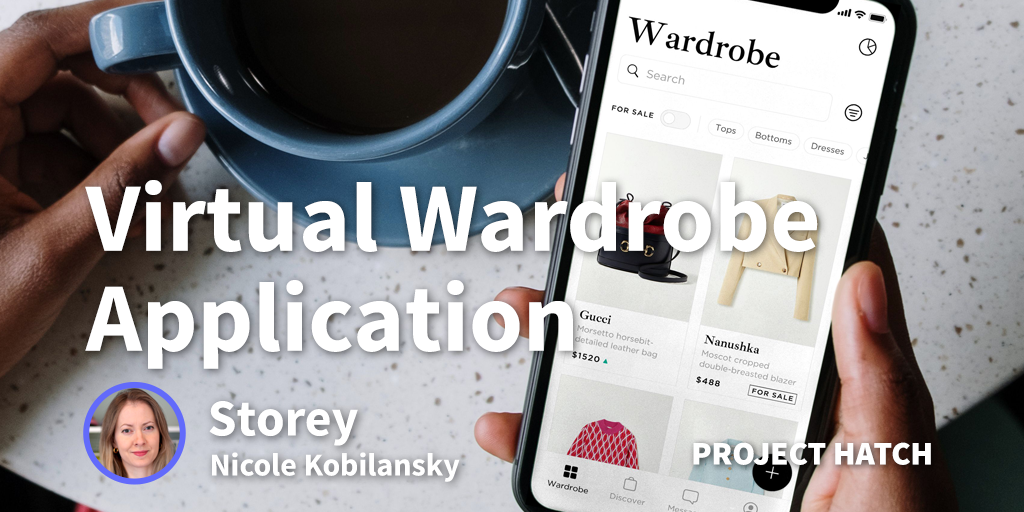I have been in the contracting business my entire life starting out by mowing lawns in high school and over the course of 15 years time grew that into a construction company with 125 employees and $8 million a year in annual revenue. In 2015 the company was acquired by a national organization.
The idea for GreenPal came to me while reading an article about Airbnb in 2012. I observed what they were doing with crowdsourcing accommodations and just knew that a similar type of platform would solve the problems. I was seeing every day in the lawn care industry especially for smaller lawn maintenance providers. I guess you could say that was my lightbulb moment. Fast forward three years since our launch we are now living in all 50 states with 220,000 homeowners that use the system every week to their lawn mowed by a local lawn care professional nearby them.
But the real reason why we do this is to help small business owners in the lawn care industry just like I was in high school. There are so many hard-working independent entrepreneurs in this industry that just need an opportunity and a platform to plug into. We are building the operating system and platform for small lawn care companies to run their entire business through.
How did you get your first three customers?
We found our first customers with Facebook GROUPS. Especially local Facebook groups. No matter your niche or vertical there is a FB group that you can participate in to contribute to the discussion, answer questions, and develop a presence to refer people to your business, often times when they are looking for exactly what you offer.
FB just also launched a dedicated mobile app to support their groups' communities so now it's easier than ever to manage the groups that you participate in, monitor the conversations, and participate while on the go throughout your day.
We have found this tactic to be very effective for our marketplace. We monitor local groups and neighborhoods' groups , and when anyone is asking for a recommendation on a lawn care service, we kindly let them know about the GreenPal community. We track the success and 60% of the time we make a recommendation, they signup for our service.
How did you validate the idea?
We knew we had to validate the idea and more importantly our value proposition and if anybody would care about what we were building . The main consideration every aspiring small business owner needs to make one starting out their small business is to formulate their value proposition.
To understand your value proposition you need to answer this one question: "If I am your ideal prospect why would I buy with you rather than one of your competitors"
We have a motto "nail it then scale it." The main mistake I made when I first started my business was failing to nail my value proposition or what is it about our product and offer that compels people to say yes.
Until I knew this, any sales efforts or spend in any channels was like pouring gasoline on wet leaves. For instance, when we first launched, we thought people would like our service because it’s a cheaper way to get their grass cut. What we found through copy testing in different channels such as ad-words and FB is that the customers ability to get same day service is a much more effective and compelling subset of our value prop that drives more visitors and more conversions on our landing pages.
Nailing your value prop first is crucial.
Have you raised any money? How much?
Our business is profitable, self-funded and will surprise $15 million in revenue this year. Debt can magnify mistakes; however, when used wisely it can be a powerful fulcrum.
When we launched our business two years ago we had no money and no outside capital to get started with. Like most tech startups we went on the fundraising circuit talking to angel investors and venture capitalists begging for money to get started. However, our vision was just too broad in scope and luckily we got turned down and told no over 40 times.
I was fortunate enough to have solid personal credit and this enabled my team to secure an unsecured line of credit for $85,000 to get our business started. We paid that off in the first year and this year we're going to surpass $15 million in annual revenue. Good thing early investors told us no because with their capital they would have owned and controlled 30% of our business and because we are self-funded, my cofounders and I own it all.
Who is your target demographic?
Our target demographic is millennials aged 25-35 , 75% of our recurring users are women .
What is the funniest/most strange customer request you’ve had?
We once had an unjustified negative review almost tank a new office that we launched, let me explain. I myself have to resist the urge to appeal or delete negative reviews on review sites such as yelp. When we launched our office in Nashville we were unlucky in getting a negative review right off the bat. The reviewer never actually even used our service; however, left the negative review confusing us with another service. We appealed to yelp but they would not take the review down we even reached out to the person to get them to correct the review and they never responded.
We were distraught because it is very difficult to overcome the cold start when launching a new market and negative reviews with no positive reviews can be almost impossible to overcome. We knew we had to develop some sort of strategy to get reviews no matter what to push the bad review down with positive sentiments.
After brainstorming we came up with an idea to tap into our customer's soul through their pets. When a homeowner signs up for our service, we gather information if they have pets, and if so what are their names. We do this so our lawn vendors know to be careful when entering the lawn. We decided we could use this info about our customer to send a personalized gift to our customers' pet, addressed to them.
This really wowed our customers, we received personal thank you notes, photos being posted to Yelp and FB and thank you tweets, it worked really well for the time and money we invested. As the Nashville office now has 27 positive reviews. We have seen several yelp reviews that specifically reference receiving the gift for their pet so we are going to continue the strategy and engaging our customers and making a personal connection.
Where did you meet your cofounder/founding team?
I found my two co-founders four years ago starting our company when searching for two people whom I could trust to start a business with. Over the years I have mentored and consulted with other start up teams and I believe tech entrepreneurs tend to overemphasize for skill sets when choosing a cofounder rather than character and trust.
Getting a cofounder for your business is much like getting married and you need to really consider is this someone who you would break bread with. Because you will be in the trenches with that person for many many years building your company, slogging through the highs and lows of building a business from scratch.
Before you look for somebody with coding skills or design skills first need to understand do they have the work ethic and character to build a company from scratch trust that person. Only if they pass the test then move onto skill sets.
Any tips for finding first employees?
Your first employee or two can be a force magnifier for your efforts. However, before you go off the deep end and take on probably your biggest expense you need to first understand how to delegate to your first employee.
Never tell people how to do things. Tell them what to do and they will surprise you with their ingenuity. That is one of my favorite quotes from General George S Patton.
I believe with respect to new hires, you'll need to outline what the big picture objective is and then get out of their way and let them show you they can do it. If they are unable to deliver, then odds are you don't have the right person on your team anyways. This is especially critical for employees for small businesses as the first 2-10 teammates you high will make a break or success.
What motivated you to start your own business?
What entrepreneurship means to me is the opportunity to live out my "why." Why does our company exist? Why do I get out of bed every morning and if I didn't why would anybody care?

When I was running an organization of over 100 people it proved it was daunting; however, creating something bigger than myself was a fulfilling experience. Our company created prosperity for our people and that’s why we did what we did. Much of our operating core was comprised of Guatemalan immigrants and these were the finest people I have ever known. Typically, they would come to the United States for several consecutive lawn mowing seasons, saving as much money as they could to improve the lives of their families back home by building homes, ranches, and setting up farms stocked with cattle.
This became our company’s purpose, our “Why.” In weekly meetings, we would get progress reports from our men on how projects “back home” were coming along. In the halls of our office and in the shop, we displayed picture collages of all the homes, farms, and businesses that had been established by our people in Guatemala. Celebrating these victories gave us fuel to get through the tough times, particularly when the economic recession that began in 2009.
Do you have any advice for someone just starting out?
For me, small business and entrepreneurship is the primary vehicle for social mobility in this country and what makes it the greatest country in the world. Entrepreneurship can be both the most beautiful and painful thing in a person's life and can be the primary change agent as well. For me about a year after starting my company the two primary changes in my character make up or as follows:
Humility
Starting your own company from scratch is one of the most humbling things a person can go through. In the beginning it is the most important thing to you, and the most important thing in your world. However, friends and family probably will not get it, will think you are crazy, and will not care about your baby the way you do.
Thinking bigger
Starting your own company forces you to think bigger and expand your circle of influence bigger than previously before in your life.
So often when we are working a steady job we become engulfed in our little microcosm of the world, watch ordinary shows on TV, and just live an ordinary life. When you are in charge of your own company, you have to be at the forefront of your capabilities at all times, learning new skills, and exposing yourself to all sorts of new ideas and concepts that you never even knew existed.
For me, entrepreneurship has been my source of my personal growth and fulfillment. Something I could've never gotten anywhere else in life.
What Have You Learned?
Three things that I've learned in the first year of building that business and my current business:
- It's going to be 10 times harder than you think it's going to be. Any creative endeavor is going to be faced with uncertainty and while you'll need to create a business plan, also be advised that that will fall apart the moment it touches your first customer.
- Nobody cares. Starting your own business is a lonely journey because your friends and family will not "get it" and truthfully nobody will really care about the long hours and sacrifices you're making. Only you will care about your vision and birthing your new business to life.
- A need for an insatiable desire to learn. I've learned more in the past year of starting my second business that in a previous 14 years combined. Ideas are still born and they will require execution and more importantly specific knowledge of skill sets to bring them to life. The first year or two is the toughest because you're having to learn all of these new skills to make your new venture a success.
What makes you stand-out from your competitors?
I have been somewhat obsessed about our culture starting with my three co-founders and 20 employees that we have built over the past four years. Culture can be a competitive advantage; you can’t deliver good service from unhappy employees.
Culture is no doubt critical to any team’s success, no matter what the size. My concern is that I observe teams in infancy place an over emphasis on things in the name of company culture before the business fundamentals are flushed out. In the beginning, we as entrepreneurs must focus and prioritize the basics and fundamentals of creating a scalable business over trying to build a cozy culture.
Ping Pong tables, free lunch, and massages help make some companies a great place to work, but these things did not make a company great in the first place. These are the perks that help keep employees happy and a great company on top, not necessarily what propels it to greatness. The best precaution we can make as entrepreneurs is to hire good fits. If you can break bread with the person, then why hire them? If you won’t enjoy hanging out with them socially then they won’t be a value add for culture.
Culture gets mislabeled as “perks” offered throughout an organization. In its most potent form, culture should refer to the aligning values of the organization; do you and your team members all believe in the same things? What is your team’s mantra? The specifics of your team’s values are not as important as the fact of having the values ingrained that align each member of that team. This adds purpose to the mission, and passion is a product of purpose. These are the elements by which real culture is created. These values have to be installed at the early stages of a company, as it’s impossible to come back later and sprinkle in some culture and values into an established team.
Strong culture is created when each member of the team believes in the same things. When that is the case, trust emerges, and when you have trust you have loyalty. With these elements embedded in a team, no matter how big or small, there is no limit to what can be accomplished.
What are the top 3-5 apps your business could not run without?
To guide our product development and product management, we use a framework called the "problem/solution canvas.” We have it set up a tool called Trello and it's a repeatable framework that we use on a weekly basis to identify our top three problems and how we are going to solve them for that week.
The best part is their mobile app interface is simply amazing. It is intuitive and extremely powerful allowing you to upload ideas, pictures, notes and files from your mobile on the go. You never know when a good idea is going to come to you and you need to append to a certain thing that the team is working on. This allows us to make small changes that compound off of one another inching our way towards the end zone rather than making huge bets we make small ones.
Trello allows us to coordinate tasks across or 20 member team distributed across four different countries. The best part that I love is that you can set due dates for each individual task that will nag your teammate until they get it done, it's the ultimate set it and forget it cost to get stuff done.
What are your favourite books?
The discipline of controlling my spending living within my means and ultimately saving money each month is one of the hardest I know of. When I was in high school I was very fortunate that my father gave me a classic book from the 1930s called "The Richest Man in Babylon." The book talks about the concept of paying yourself first 10% to 20% each month's earning before you pay any of your bills.
When you are forced to pay yourself first each month, it acts as a forcing function to live within your means. This discipline combats the phenomenon of no matter how large our personal income gross our expenses and lifestyle always grow along with it. The author talks about if desire to purchase something i.e. a car Etc you must first acquire the asset that will deliver the rate of return to purchase whatever it is.
I'm so glad that I absorbed this book at a young age because I practiced its teachings over the course of 15 years and have now over time acquired 12 paid for rental homes. Now I'm in my mid-30s and that has allowed me to pursue my dreams of building a successful tech company.
What are your favourite podcasts?
I listen to dozens of marketing podcasts and my favorite one is called "The Zip.” It is the only podcast that I have come across that dives into the strategies and interviews practitioners in local search engine optimization and local public relations. It is the most effective marketing podcast I have found.
What are the next products you’re working on?
As Jeff Bezos would say it’s still day one and that is definitely the case with GreenPal. Currently , we are working on machine learning technology to deliver auto bidding prices for homeowners so they can instantly book Lawn care professionals using our platform in seconds so they won’t have to wait for bids from lawn care pros.
GreenPal’s goals is to become the only nationwide platform that homeowners and Lawn Care professionals use to get their lawn mowings completed for as long as they own their home.
| Company Name: | Greenpal |
|---|---|
| Founder: | Bryan Clayton |






